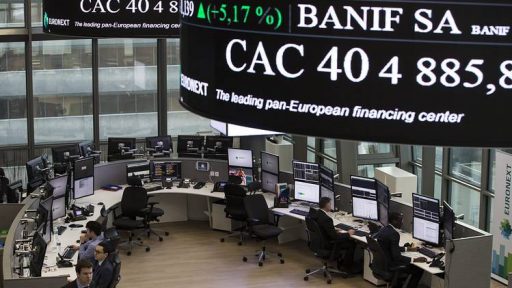- Home
- >
- Daily Accents
- >
- Analysis used by Warren Buffett and Paul Tudor Jones shows markets are ‘entering frothy territory’

Analysis used by Warren Buffett and Paul Tudor Jones shows markets are 'entering frothy territory'

Stocks are entering "frothy territory" and could fall soon due to a turnaround in monetary policy, a Deutsche Bank economist said Monday, citing analysis that is used by some of the more notable names in finance.
"We believe the equity market in developed countries begins to show symptoms of 'froth,'" Mikihiro Matsuoka, chief economist at Deutsche Bank, said in a note.
"The reason we believe it is entering frothy territory is that an eventual turnaround of monetary policy after a long period of post-[great financial crisis] accommodation is under way in major developed countries, which in our view, raises the returns on safe assets and lowers the valuation of risk assets," he said.
Matsuoka pointed to a chart comparing the stock market capitalization of seven major developed countries to their gross domestic products. The line below represents the average standard deviation — distance from a historical norm — of how much the stock markets are worth as a percentage of GDP.
This year's high of 1.30 in May is approaching recent peaks of 1.34 in May 2015, 1.61 in May 2007, just before the financial crisis, and 1.45 in August 2000, during the collapse of the tech bubble. The preliminary read for June was 1.29, the report said.
The chart is similar to one Warren Buffett said he watches as a key measure of valuation, and in April reclusive hedge fund legend Paul Tudor Jones reportedly said a chart similar to this one should be "terrifying" to central bankers.
A July version of the chart calculated by dshort.com shows investors value U.S. stocks at 127.6 percent of GDP, the highest since around the tech bubble in 2000 when the reading was 136.5 percent.
Now, monetary policy is beginning to tighten in major countries, after years of accommodative policy after the 2008 financial crisis in an effort to stimulate the economy. The European Central Bank and Bank of England have signaled they could soon depart from years of ultra-easy monetary policy. In the U.S., the Federal Reserve is already raising interest rates and plans to begin reducing its balance sheet holdings later this year.
To Matsuoka, that's enough reason to worry about a frothy market.
Source: Bloomberg
Junior Trader Stefan Panteleev
 Varchev Traders
Varchev Traders Read more:
If you think, we can improve that section,
please comment. Your oppinion is imortant for us.












